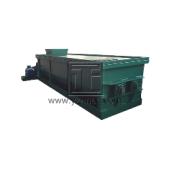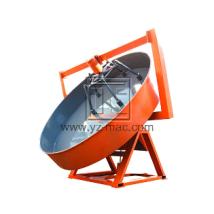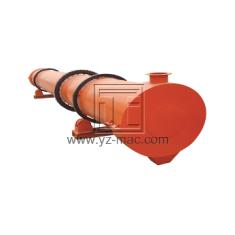Industrial composting
Industrial composting is a systematic and large-scale approach to managing organic waste materials, transforming them into nutrient-rich compost through controlled decomposition processes. This method offers an efficient and sustainable solution for diverting organic waste from landfills, reducing greenhouse gas emissions, and producing valuable compost for various applications.
Benefits of Industrial Composting:
Waste Diversion: Industrial composting helps divert organic waste materials, such as food scraps, agricultural residues, and green waste, from landfills. By diverting organic waste, it reduces methane emissions, a potent greenhouse gas, and minimizes the environmental impact associated with landfilling.
Nutrient Recycling: Through industrial composting, organic waste materials are transformed into nutrient-rich compost. This compost can be used as a soil amendment, returning valuable nutrients and organic matter back to the soil. Nutrient recycling promotes soil health, enhances crop productivity, and reduces the reliance on chemical fertilizers.
Soil Improvement: Industrial compost, derived from composting processes, improves soil structure, water retention, and nutrient availability. It enhances soil fertility, promotes beneficial microbial activity, and aids in erosion control. The application of compost helps restore degraded soils and supports sustainable land management practices.
Carbon Sequestration: Composting organic waste materials allows for the sequestration of carbon in the resulting compost. By converting organic waste into stable organic matter, industrial composting helps mitigate climate change by storing carbon in the soil, reducing carbon dioxide emissions, and improving overall soil health.
Key Components of Industrial Composting:
Feedstock Preparation: Organic waste materials are collected and prepared for the composting process. This includes sorting, shredding, and blending various waste streams to create an optimal mixture for composting.
Composting Piles or Windrows: The prepared feedstock is formed into large piles or windrows, typically in designated composting areas. These piles are carefully managed to ensure proper aeration, moisture content, and temperature for optimal decomposition.
Compost Turning Equipment: Compost turning machines or equipment are used to periodically turn or aerate the compost piles. This facilitates oxygen supply to the microorganisms, promotes decomposition, and ensures uniform composting throughout the pile.
Temperature Monitoring: Industrial composting involves monitoring the temperature of the compost piles. Elevated temperatures within the piles indicate active decomposition and help ensure the elimination of pathogens and weed seeds during the composting process.
Applications of Industrial Compost:
Agriculture and Horticulture: Industrial compost is used as a soil amendment in agriculture and horticulture. It enriches the soil with organic matter, improves soil structure, enhances nutrient availability, and promotes healthy plant growth. Compost applications reduce the need for synthetic fertilizers and support sustainable farming practices.
Landscaping and Restoration: Industrial compost finds applications in landscaping, land reclamation, and habitat restoration projects. It improves soil quality, aids in erosion control, and enhances vegetation establishment in disturbed or degraded areas.
Soil Erosion Control: Compost is utilized for erosion control on construction sites, slopes, and bare ground areas. The addition of compost helps stabilize the soil, prevents erosion, and promotes vegetation growth, protecting against soil loss and runoff.
Industrial composting provides a sustainable solution for managing organic waste materials on a large scale. By diverting waste from landfills and converting it into nutrient-rich compost, industrial composting offers numerous benefits, including waste reduction, nutrient recycling, soil improvement, and carbon sequestration. Key components of industrial composting include feedstock preparation, composting piles or windrows, compost turning equipment, and temperature monitoring. The applications of industrial compost range from agriculture and horticulture to landscaping, land restoration, and stormwater management. Embracing industrial composting practices contributes to a circular economy, reducing waste, conserving resources, and promoting sustainable agriculture and land management practices.








